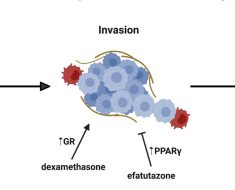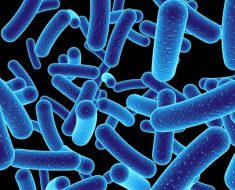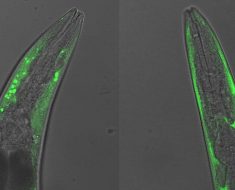Diet is known to impact the human gut microbiota significantly throughout life. For example, several studies have reported high numbers of Bifidobacteria in the guts of infants who received breast milk. In contrast, high levels of Clostridia and Bifidobacteria were observed in formula-fed infants.
Polysaccharide-rich diets are associated with increased Bacteroides and Actinobacteria levels, along with a decreased amount of Firmicutes. Comparatively, a Western diet high in animal fat and protein and low in fiber is often associated with lower Eubacterium and Bifidobacterium levels.

Study: The effects of fermented vegetable consumption on the composition of the intestinal microbiota and levels of inflammatory markers in women: A pilot and feasibility study. Image Credit: Sentelia / Shutterstock.com
Background
Gut microbiota is essential to induction and activity of adaptive and innate immune responses. Dysbiosis causes an imbalance of pathogenic and commensal bacteria in the gut, producing microbial metabolites and antigens, such as cytokines and lipopolysaccharides (LPS), that can activate intestinal macrophages.
LPS is a part of the outer membrane of Gram-negative bacteria and is transported by the LPS-binding protein (LBP) in humans. The synthesis of LBP, an acute-phase protein, reduces the biological effects of LPS. C-reactive protein (CRP) is another inflammatory marker associated with dysbiosis.
Although many dietary approaches can alter the diversity and abundance of specific microbial taxa, further studies are needed to determine the specific health benefits of different fermented foods. For example, fermented vegetables are both a source of prebiotics and probiotics that can help promote metabolic and intestinal health; however, it is not known whether it is practical for individuals within Western nations to consume fermented vegetables, as they are not typically exposed to these foods.
A new PLoS One study reports the effects of consuming 100 grams of fermented vegetables regularly for six weeks on the expression of specific inflammatory markers and gut microbiota composition.
About the study
The current study was conducted between January 2019 and October 2019 and involved only women randomly assigned to three groups. Group A was denoted as the fermented vegetable group, group B as the pickled vegetable group, and group C as the control group.
Inclusion criteria for participants involved no previous diagnosis of cancer, non-smoker, not on weight loss medication, no serious chronic disease, not receiving antibiotics for at least three months before enrollment, not taking monoamine oxidase inhibitors, not consuming fermented vegetables regularly, willing to be randomized to any of the three groups, and willing to consume fermented vegetables for six weeks.
Patients with a history of uncontrolled hypertension, smoking, intake of probiotics or antibiotics, younger than 18 years, older than 70 years, autoimmune disease, and taking anti-inflammatory medications regularly were excluded. All participants' eligibility was verified through an in-person orientation session, informed consent, and baseline clinic visit. All study participants provided stool samples within 24 hours of their two clinic visits.
Participants in groups A and B consumed one-half cup of vegetables each day for six weeks, equal to 80 g of cucumbers or 100 g of cabbage. In addition, they were provided with seven one-cup containers of fermented cucumber/cabbage or pickled cucumber/cabbage every two weeks until the end of the study period.
Data on the intake of prescription medication, food intake, and demographics were collected from all participants. All study participants also reported their gastrointestinal function, side effects, compliance with the study intervention, and amount of vegetables consumed in cups.
The participants' dietary intake was analyzed at baseline and follow-up through a Diet History Questionnaire III (DHQ-III). The dietary variables of interest included total protein (g), carbohydrate (g), glycemic load, fiber (g), fat (g), calories (kcal), and Healthy Eating Index (HEI). Additionally, information on weight, height, blood pressure, and body composition were collected.
Blood samples were collected from all participants at two clinic visits to assess serum tumor necrosis factor α (TNF-α), CRP, and LBP levels. Next-generation sequencing and DNA extraction were used to determine the V4 region of the gut microflora's 16S ribosomal ribonucleic acid (rRNA) gene.
Study findings
Taken together, 31 participants completed the study. Participants of group C were younger than those in the other two groups.
The overall nutrition facts were similar for the fermented and pickled vegetable groups regarding sodium contents and macronutrients. Firmicutes were the most abundant phylum in all vegetable groups, irrespective of fermentation status.
The predominant genera reported in the fermented vegetable group included Weissella, Leuconostoc, and Lactobacillus. Comparatively, the predominant genera in the pickled vegetable group included Paenibacillus and Bacillales.
Group A participants consumed a total of 1,237 g of fermented cucumbers and 1,609 g of fermented cabbage, while those of group B consumed 1,590 g and 1,615 g of pickled cucumbers and pickled cabbage, respectively.
The most frequently reported side effect was bloating, followed by abdominal pain. The most frequently reported stool consistency was smooth and soft.
Over 79% of participants in group A and 89.9% in group B were observed to show compliance. Additionally, systolic blood pressure and percent body fat were significantly lower for group C participants as compared to the other groups.
No differences in alpha and beta diversity were observed within or between groups for the top 20 genera or phyla. Although the operational taxonomic units (OTU) for group C were lower than the other two groups at baseline, no differences were observed by week six.
Enrichment of OTU3 was observed for group A at week six, while no such changes were observed for the other two groups. Moreover, enrichment of OTU32 was observed for group A, OTU206 for group B, and OTU163 for group C at week six.
Conclusions
The current study reports that Western females can consume 0.5 g of fermented vegetables each day for six weeks without experiencing any major side effects. However, further research is needed to understand the impact of fermented vegetables on gut microflora composition and markers of inflammation.
Limitations
Some of the limitations of the current study include its small sample size, which only consisted of females, as well as the diverse ages and body weights of the participants that limit the generalizability of these results.
- Galena, A. E., Chai, J., Zhang, J., et al. (2022). The effects of fermented vegetable consumption on the composition of the intestinal microbiota and levels of inflammatory markers in women: A pilot and feasibility study. PLoS ONE. doi:10.1371/journal.pone.0275275.
Posted in: Medical Science News | Medical Research News | Women's Health News
Tags: Abdominal Pain, Anti-Inflammatory, Autoimmune Disease, Bacteria, Bloating, Blood, Blood Pressure, Breast Milk, Cancer, Carbohydrate, Chronic, Chronic Disease, Clostridia, C-Reactive Protein, Cytokines, Diet, DNA, DNA Extraction, Dysbiosis, Fermentation, Food, Gene, Inflammation, Lactobacillus, Membrane, Metabolites, Necrosis, Nutrition, Pain, Prebiotics, Probiotics, Protein, Research, Ribonucleic Acid, Smoking, Tumor, Tumor Necrosis Factor, Vegetables, Weight Loss, Women's Health

Written by
Suchandrima Bhowmik
Suchandrima has a Bachelor of Science (B.Sc.) degree in Microbiology and a Master of Science (M.Sc.) degree in Microbiology from the University of Calcutta, India. The study of health and diseases was always very important to her. In addition to Microbiology, she also gained extensive knowledge in Biochemistry, Immunology, Medical Microbiology, Metabolism, and Biotechnology as part of her master's degree.
Source: Read Full Article





